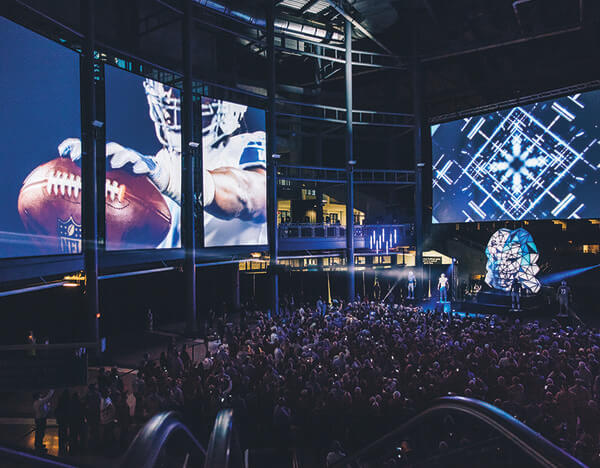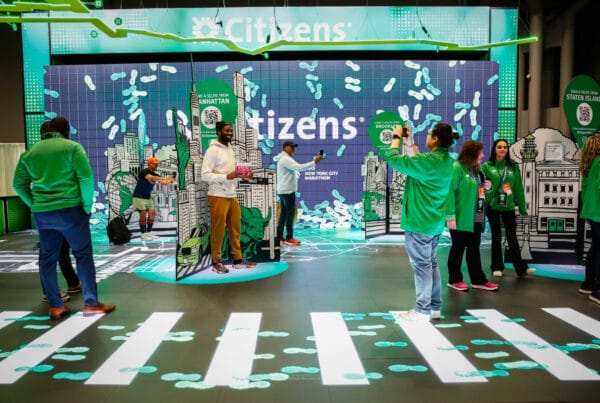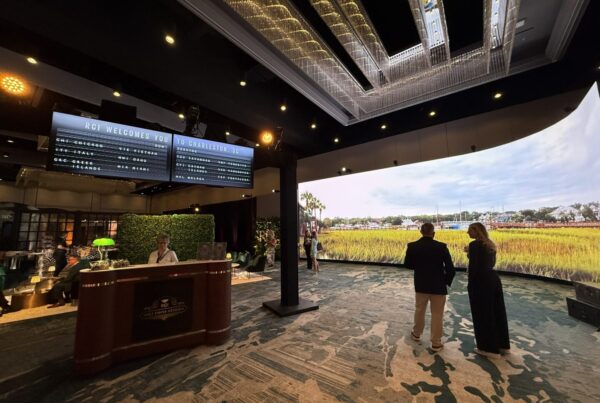2022 continues to be an eventful year in the events space. In the paragraphs to follow we will break down event trends to know this year, and how they might apply to your business. As the world relaxes a bit on the downslope of the latest variant, events are getting back to full swing. Many of the early trends predicted for 2022 are holding steady, and we’ve identified several more to add to the mix.
As you look to continue building out and planning events for 2022 and beyond, you should be aware of these additional event trends for 2022.
Blockbuster Events Coming Back, But Slowly
In 2022, we’re seeing a slow return to big, flashy blockbuster events. But the return is slow and cautious, which makes a whole lot of sense.
For one, the jury’s still out on what attendees will do. Will air and international travel be worth the time and expense, even for big events? Or will they opt for a hybrid option (if available)?
There’s also the question of whether another surge or variant could cause businesses to need to scrap their big (and very expensive) plans.
Local and Regional Experiences Are In
In contrast to massive, blockbuster events, local and regional events and experiences continue to see a surge in demand. The world might not quite be ready for the big blowout events, but smaller-scale events with little to no global travel feel safer and more approachable.
Even if another flare-up occurs, a local event is easier to control, adjust, or postpone.
Event planners should be prepared for more but smaller events with a heavier focus on local and regional participation.
Some of these will also include hybrid components, or they may be local-hybrid events (more on those below).
A Focus on Local Means More Unique Character
Because in-person events are trending smaller, event planners have the ability to locate them in smaller unique local venues full of character and interest. It’s no longer required (or even desirable) to host events in the airport- or convention center-adjacent hotel, so events pros are choosing more interesting locations.
Along with this, we’re seeing a renewed focus on independent and local partners for dining. The combined effect here is that you can give attendees a true taste of your city — something they can’t get by tuning in to the live stream.
Virtual and Hybrid Events Mature, Along with the Needed Tech
Most people’s first foray into virtual or hybrid events was a thing of necessity thanks to the early days of the pandemic. It wasn’t always possible to find the best tools or platform. You simply needed to get something — anything — in place so you could salvage an event that was never intended to be virtual.
Despite the challenges, it turns out audiences really, really appreciated having a virtual option. Now, even as live events return, virtual and hybrid aren’t going away. They’re becoming an established option instead.
As that happens, the idea of a virtual or hybrid event is maturing, and best practices are emerging.
The technology undergirding hybrid events is maturing, too. New, purpose-built platforms like Parallel are supplying needed functions like virtual exhibit halls, multiple virtual stages, community engagement, and deep analytics.

Satellite Hybrid Events
One hybrid trend that’s growing in popularity is the satellite approach. This works well for businesses with multiple regional hubs, or any other event types where there’s an existing regional support structure in place.
In the satellite model, instead of bringing everybody to one big event (and offering a virtual track of that event), you invite people to regional satellite hubs. These smaller venues have the feel of a live event, and some or all of them could even have some live speakers present.
In this model, every satellite location streams their live content to the others, creating a smaller, truly hybrid experience where just about everyone gets some live and some streamed content.
This model carries lower risks, is more flexible if a venue or hub falls through or needs to move, and generates higher engagement than an all-virtual event. That said, the logistics can be complex, and the parent organization may face higher overall costs.

Live Events Continue to Evolve. Are You Ready?
Live events continue to evolve in 2022 and beyond, with new expectations, new technology, and new formats. Are you ready for these changes? If not, Bluewater can help. Reach us today and we’ll equip you with everything you need for successful modern live events.











